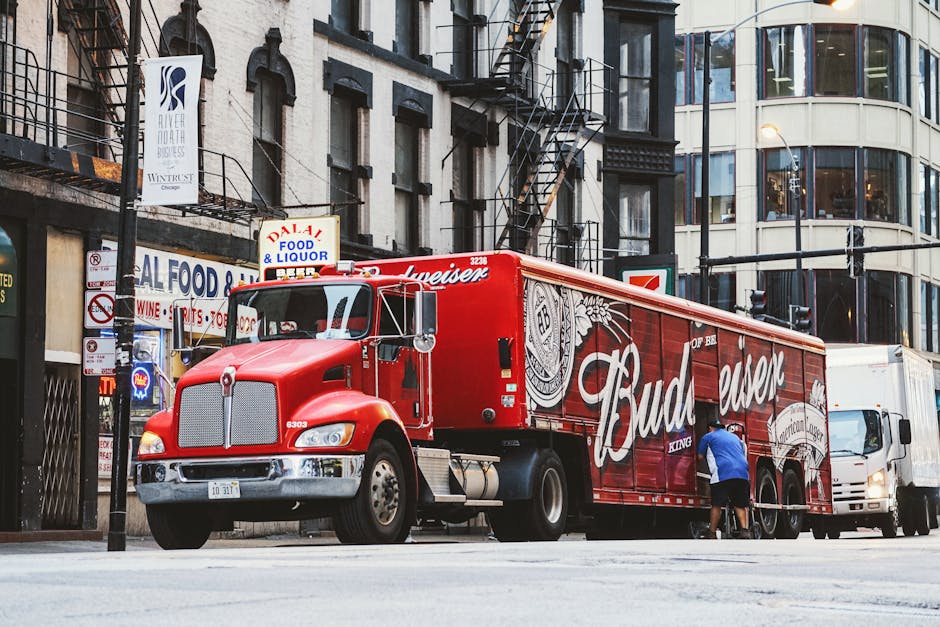Truck Explosion in Chicago: Causes, Consequences, and Prevention Strategies
The devastating impact of a truck explosion in Chicago is a scenario that demands careful consideration. While such events are thankfully rare, their potential for widespread destruction, injury, and economic disruption necessitates a comprehensive understanding of their causes, consequences, and preventative measures. This article delves into the various factors that can lead to such incidents, explores their devastating aftermath, and examines strategies to mitigate the risks and enhance safety within the city.
Causes of Truck Explosions in Urban Environments Like Chicago
Truck explosions can stem from a multitude of causes, ranging from accidental mechanical failures to deliberate acts of terrorism. Understanding these contributing factors is crucial for developing effective prevention strategies.

Mechanical Failures and Accidents:
- Fuel Tank Leaks and Ignition: A leak in a fuel tank, coupled with an ignition source (such as a spark from a faulty electrical system or a nearby flame), can lead to a catastrophic explosion. Regular vehicle maintenance and stringent inspections are vital to prevent this.
- Gas Leaks from Compressed Gas Cylinders: Trucks often carry compressed gases for various purposes. Leaks in these cylinders, particularly in conjunction with ignition sources, can result in powerful explosions. Proper cylinder handling, regular inspections, and secure storage are paramount.
- Overheating of Engine Components: Overheating engines can ignite flammable materials within the engine compartment or nearby, causing an explosion. Proper engine maintenance, regular coolant checks, and effective cooling systems are critical.
- Improper Handling of Flammable Materials: Trucks carrying flammable materials require specialized handling and transportation procedures. Negligence in following these procedures can lead to accidental ignition and explosions.
Deliberate Acts and Terrorism:
Sadly, truck explosions can also be the result of intentional acts of violence or terrorism. These events necessitate heightened security measures and comprehensive emergency response protocols. Identifying potential threats and proactively addressing vulnerabilities are key to minimizing the risks associated with such attacks.
Consequences of a Truck Explosion in Chicago
The consequences of a truck explosion in a densely populated urban area like Chicago can be far-reaching and devastating.

Immediate Impacts:
- Loss of Life and Injuries: Explosions cause immediate casualties, ranging from fatalities to severe burns and trauma. The intensity of the blast and proximity to the explosion determine the severity of injuries.
- Property Damage: The blast wave can cause significant damage to nearby buildings, infrastructure, and vehicles. The extent of the damage depends on the size of the explosion and the type of construction.
- Disruption of Transportation and Services: A truck explosion can disrupt traffic flow, public transportation, and essential services, causing significant economic losses and inconveniences.
- Environmental Contamination: Depending on the contents of the truck, the explosion can release hazardous materials into the environment, causing air and water pollution.
Long-Term Impacts:
- Economic Losses: The cost of repairing infrastructure, replacing damaged property, and providing medical care can be substantial. Businesses in the affected area may also suffer significant economic losses.
- Psychological Trauma: Witnessing a truck explosion can cause severe psychological trauma for survivors and first responders. Access to mental health support is crucial in the aftermath of such events.
- Reputational Damage: A significant truck explosion can damage the reputation of the city, impacting tourism and investment.
Prevention Strategies and Mitigation Measures
Mitigating the risks of truck explosions requires a multi-faceted approach involving government regulations, industry best practices, and public awareness campaigns.

Regulatory Measures:
- Stricter Vehicle Inspections and Maintenance Requirements: Regular and thorough inspections of trucks carrying hazardous materials are essential. Strict enforcement of maintenance regulations is crucial to prevent mechanical failures.
- Enhanced Security Measures at Transportation Hubs: Increased security measures at trucking terminals and other transportation hubs can deter potential attacks and prevent unauthorized access to hazardous materials.
- Improved Emergency Response Protocols: Well-defined emergency response plans and protocols are crucial for minimizing casualties and damage during and after an explosion.
Industry Best Practices:
- Driver Training and Education: Proper training for truck drivers on safe driving practices, handling of hazardous materials, and emergency procedures is essential.
- Use of Advanced Safety Technologies: Implementing advanced safety technologies, such as electronic stability control and collision avoidance systems, can help prevent accidents.
- Secure Transportation of Hazardous Materials: Following strict protocols for the transportation of hazardous materials, including secure packaging, proper labeling, and route planning, is critical.
Public Awareness Campaigns:
Raising public awareness about the risks associated with truck explosions and educating the public on safety precautions can help prevent accidents and improve community preparedness.
Conclusion
Truck explosions in Chicago, though infrequent, pose a significant threat to public safety and the city’s infrastructure. A comprehensive strategy that integrates regulatory measures, industry best practices, and public awareness campaigns is necessary to mitigate the risks and enhance safety. By understanding the causes, consequences, and preventive measures, we can work towards creating a safer environment for all.

